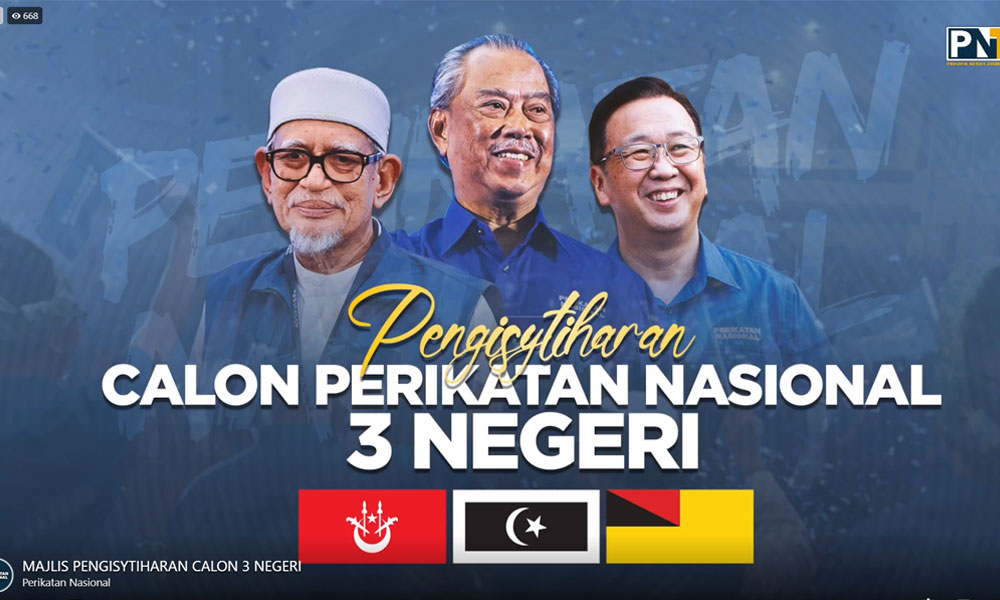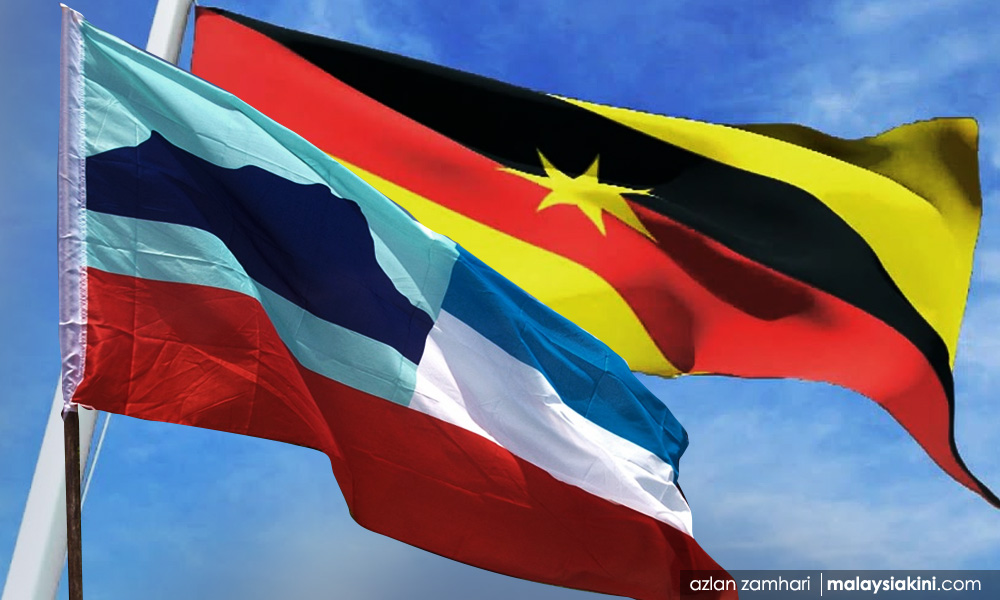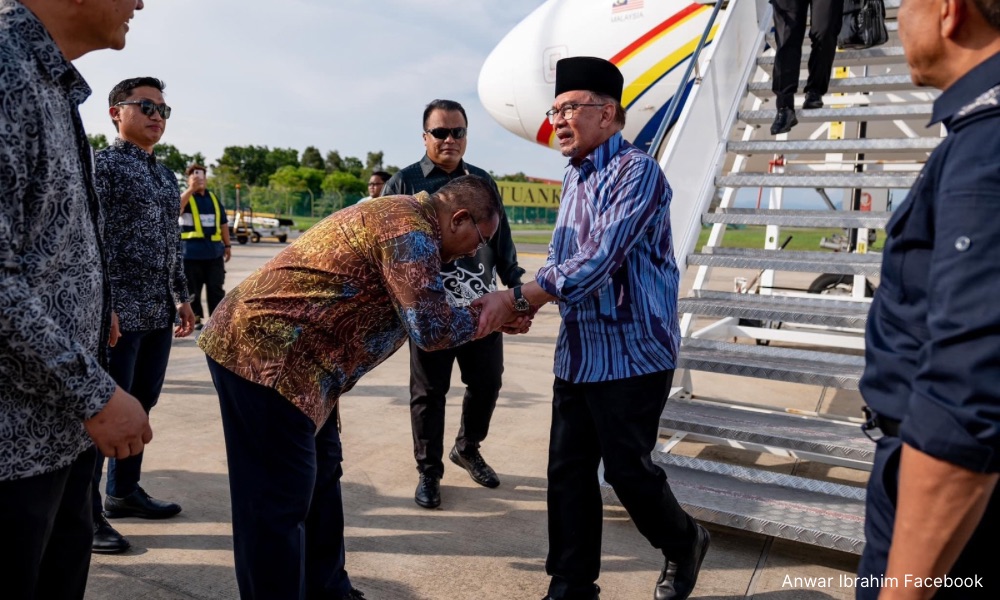The 14th general election (GE14) in May 2018 changed the face of national politics, civil society, elections, and democracy in Malaysia in a multitude of ways - which other articles in this series will expand upon.
What is less often highlighted is how the election also transformed state-federal relations in the country and reinvigorated important discussions over federalism.
Till recently, there were always more states led by the federal ruling party than the opposition.
At the point of Parliament’s dissolution ahead of GE14, only three states had been in opposition hands for the previous decade since 2008, under PAS (Kelantan) and Pakatan Harapan (Selangor and Penang), leaving the rest of the states aligned with the incumbent coalition at the federal level, BN.
The immediate outcome of GE14 was that Harapan controlled seven states compared to its previous two, BN controlled two compared to its previous eight, and PAS regained Terengganu, holding the two east coast states.
In East Malaysia, Sabah was taken by Parti Warisan Sabah aligned with Harapan, while Sarawak was aligned with BN.

The later downfall of the Harapan federal government in February 2020 and the subsequent rise of Perikatan Nasional has led to even more complicated state outcomes.
The idea of “majority” vs “minority” states is no longer meaningful since there has been a mix of states under the control of three different coalitions, or even under a mix of coalitions.
After losing the federal government, Harapan lost Johor, Malacca, Perak, and Kedah to PN, while in Sabah, Warisan was replaced by the PN-aligned Gabungan Rakyat Sabah (GRS).
Harapan maintained three state governments: Selangor, Penang, and Negeri Sembilan.
Finally, the outcome of the series of state elections from 2021 to 2022 is that as of today, Harapan holds Selangor, Penang, and Negeri Sembilan; PAS holds the four states of Kedah, Perlis, Terengganu, and Kelantan; BN holds Johor; while a Harapan-BN government rules Malacca, Pahang, and Perak.
No single ruler
The fluidity with which states changed hands, alongside the fragmentation of political parties and coalitions over the last six years, since 2018, has had several implications.
First, unlike before, the coalition at the federal government no longer assumes control of almost all the state governments.
What this means in real terms is that no single party - not even the party controlling the federal government - can access the valuable institutional and fiscal resources of all states, which could contribute to greater party and coalition strengthening.
While this was an assumption of the past under BN prior to 2018, this can no longer be the case.
Because of this development, controlling state governments, and therefore the corresponding state resources, have become more valuable over time.
Electoral contestation over each state has increased, as parties compete ever more aggressively to take control of individual states.

States have therefore become crucial playing grounds for political parties that intend to demonstrate their leadership qualities, ability to govern, and prove they have an edge over others.
PAS is a good case in point. It had control of only the Kelantan state government in 2018, expanded to Terengganu in 2020, and today it controls two more states on the peninsula’s west coast.
This steady increase in influence has allowed it to brandish its Islamic credentials precisely the way it markets itself, as puritan Islamists.
Hence, it will no longer renew operating licences of gaming outlets in any of the four states it controls. These states are not just for controlling; they are important “showcase states” across the country.
Meanwhile, Harpaan has continuously referred to its two crown states of Selangor and Penang as examples of good fiscal management, translated into public services in the form of a variety of offerings to the rakyat.
Greater state autonomy
A second implication of more state contestation is that states themselves are also behaving differently. When previously they were most often aligned with the federal government, now as opposition-run states, they have become more eager to demand for funds as well as more policy autonomy.
This is especially the case for Sabah and Sarawak, which in recent years have called for the federal government to restore state rights as was promised under the Malaysia Agreement 1963 (MA63).

Election manifestos of all political parties now refer to some form of respect for federalism, mostly in specific reference to East Malaysian states.
Sarawak is most aggressive in charting its own way forward, for instance having set up its own oil and gas downstream company Petros in competition with the national oil company Petronas, among other independent initiatives that may send a signal to other states that they, too, can pursue their own state visions - with or without the explicit nod of the federal government.
The Covid-19 public health crisis in 2020 led to many state governments emerging with their own policy innovations and has also increased the conversation around the potential to decentralise healthcare to state governments.
Much more research and engagement will be required to determine what forms of administrative and fiscal decentralisation are needed to achieve efficiency and autonomy while balancing the principles of self-rule and shared rule.
Federal concessions
Third, the federal government is also starting to respond by providing some concessions. Immediately after GE14, the Finance Ministry approved for state governments to receive half of tourism tax revenue collected by the federal government for the very first time.
In 2019, Ecological Fiscal Transfers (EFTs) were introduced in the budget, which are funds transferred from the federal to state governments for protecting and expanding their forest reserves and protected areas (land and natural resources are under state government jurisdiction).
These EFTs have increased by 50 percent in the most recent budget cycle, rising from RM70 million in 2022 to RM150 million in 2023.
That said, political alignment between state and federal governments has always been crucial to ensuring funds would flow to a particular state, where BN has indeed withheld funds from opposition-led states in the past. After 2018, there seems to be a mixed record of this.
On the one hand, despite PAS being in control of Kelantan and Terengganu, the federal government paid more attention to mending ties with them by paying back oil royalties that had previously been withheld and ensured these states had a considerable focus in the Shared Prosperity Vision 2030 document it launched.
On the other, this alignment may still be imperative to ensure sufficient development funds for the state.
Most recently, Kedah Menteri Besar Muhammad Sanusi Md Nor apologised to Prime Minister Anwar Ibrahim for a statement he previously made.

In the same apology, he “expressed appreciation to the prime minister for paying attention to development projects in the state, especially in the rural areas”. This particular aspect of state-federal relations, unfortunately, still seems to remain true.
State politics
Finally, states are also proving crucial in experiments of democracy, as they are considered “lower stakes” than the national level.
It was in Perak that the BN and Harapan coalitions first amalgamated a form of “unity government” in December 2020, when the BN menteri besar agreed to provide equal constituency development funds to all elected state representatives, regardless of party.
In 2023, the Kelantan state government followed suit to provide equal funds to all state reps.
The Perak case is most interesting since this later led to then- prime minister Ismail Sabri Yaakob initiating and signing the federal-level memorandum of understanding with the opposition in 2021, thereby achieving the much-needed national stability the country needed then.
As political parties accumulate more experience in governing states, this will likely lead to states changing the way they relate to the federal government.
Experience in the subnational executive office is valuable for politicians intending to scale up to occupy national office eventually.
Without a doubt, GE14 paved the way for the conversation around federalism to change. While national-level politics will continue to be the main attraction, what happens at the state level can no longer be dismissed as secondary.
Indeed, as the nation continues to undergo democratic consolidation, states will continue to be important players. Political parties would do well to remember that. - Mkini
TRICIA YEOH is CEO of the Institute for Democracy and Economic Affairs (Ideas).
The views expressed here are those of the author/contributor and do not necessarily represent the views of MMKtT.



No comments:
Post a Comment
Note: Only a member of this blog may post a comment.